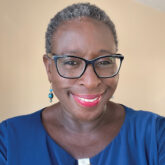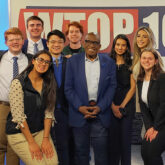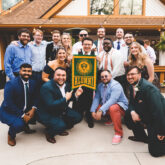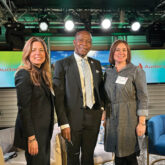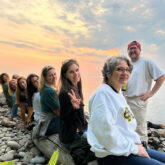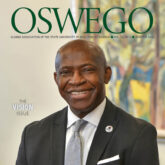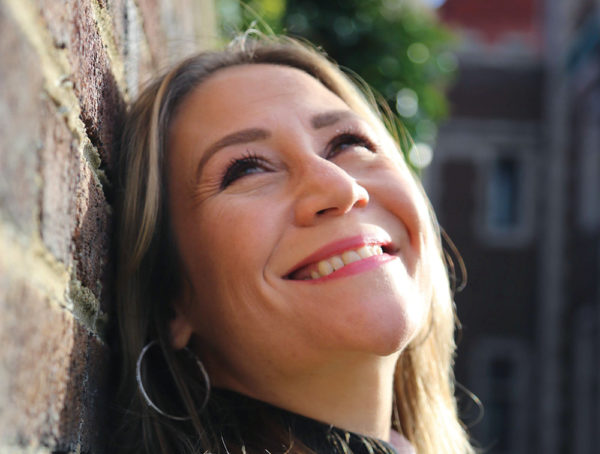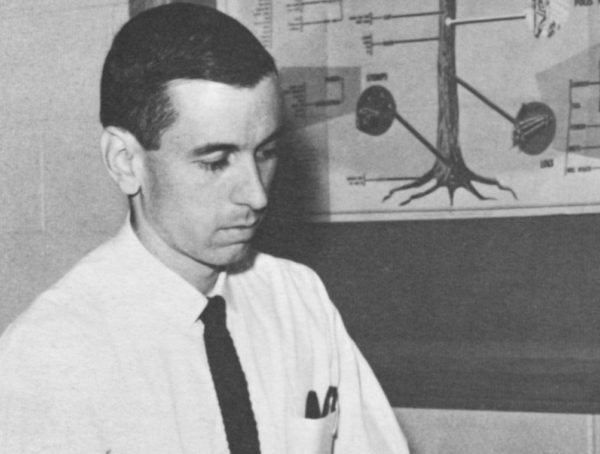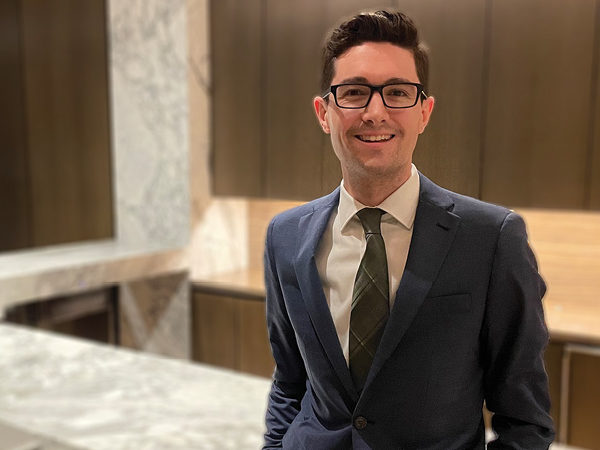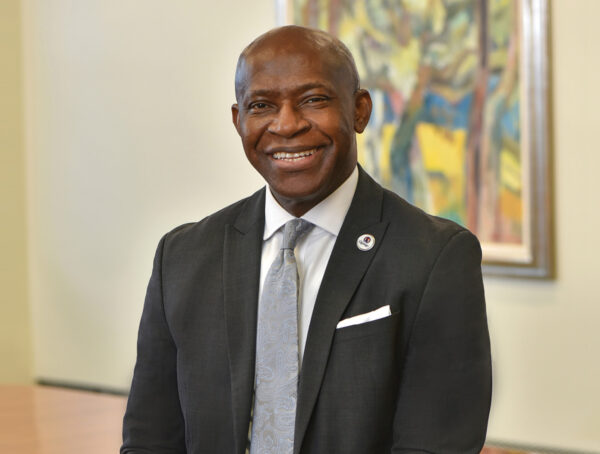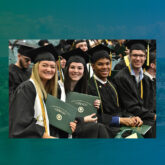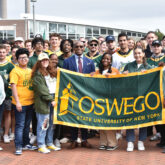Engineers repeatedly revise project en route to innovation
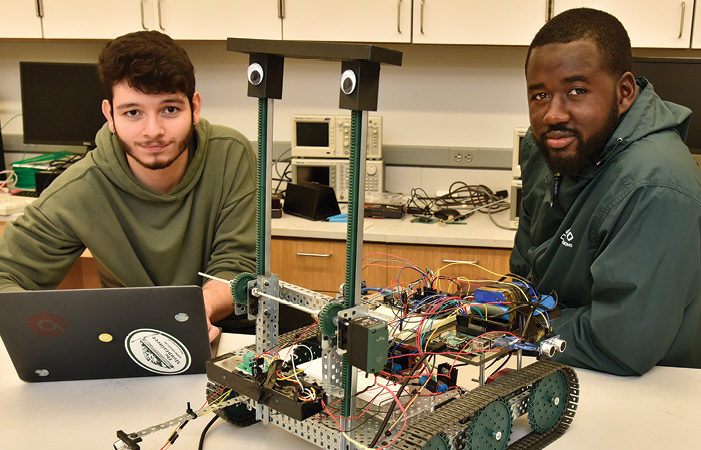
Nobody wants a burnt Raspberry Pi.
That was certainly the case for the electrical and computing engineering (ECE) duo of Yahya Ibrahima Ndiaye ’22 (above, at right) and Diego Alejandro Ibanez ’23who fried the microprocessor on MagRetract, a robot they designed and built in their senior capstone project.
Early in the design process, they had overwhelmed the Raspberry Pi microprocessor and had to revise their design to properly power the circuit that enables the robot to autonomously clean up metal scraps from a construction site.
“The work we do definitely involves a lot of trial, error and revision,” said Ndiaye, a native of Senegal who first came to SUNY Oswego in 2017 for the GENIUS Olympiad in high school. “We were to solve these problems by spending a few weeks trying to understand what we might have done wrong and therefore revise our ways of operation. Throughout this project, we had on multiple occasions changed or revised the specs of our robot to ensure an optimal design of the overall project.”
Ibanez, a native of Brentwood, N.Y., said the process of trial and revision is what makes the field of engineering so appealing to him.
“Hitting a ‘dead end’ is probably the most frustrating thing about this line of work,” Ibanez said. “That being said, the moment when you finally figure out the issue and get the project working is the greatest feeling one can feel. The longer you stay in that ‘dead end’ phase, the better the feeling afterwards when you solve the problem.”
The pair of engineers encountered several problems in developing their capstone project robot. To fix the burnt microprocessor, they added a bigger battery for more power, which created a new challenge as the weight of the battery caused the robot to tip over. Along the way, they made small revisions to the software code and larger changes to the chassis of the robot.
But with each new issue, the team stepped up to troubleshoot. Both students had full schedules with classes, work and a host of extracurricular activities, including the Society of Hispanic Engineers for Ibanez and the Muslim Student Association, the National Society of Black Engineers, an outreach internship in Admissions, technical assistant position for the ECE department, a resident assistant position and tutor for Ndiaye. Both are also members of SUNY Oswego’s Robotics Club.
They met nightly for several hours, sometimes into the middle of the night, to work on their project.
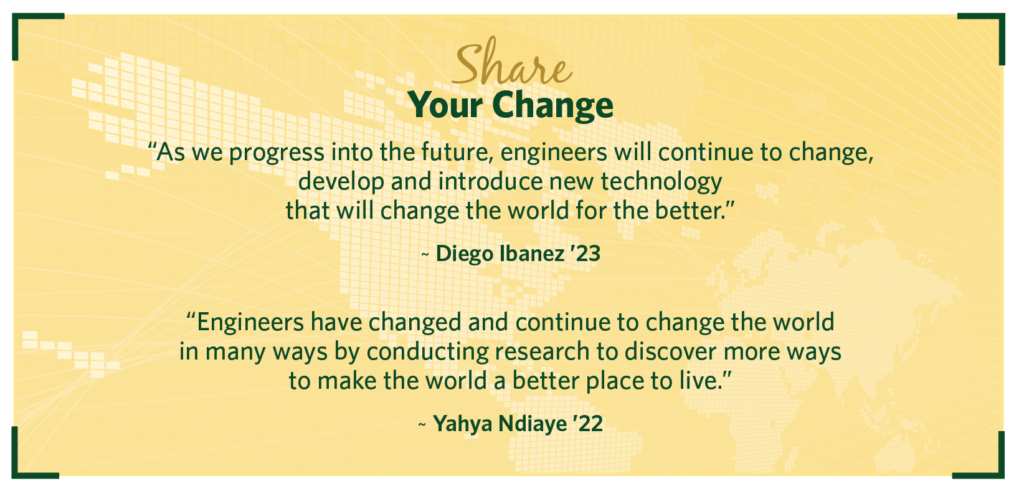
After graduation in May, Ibanez said he plans to find a career in the power industry.
“I hope to develop a new piece of equipment that can change the way we power our country,” Ibanez said. “Whether it be a big or small change, I just want to be able to say that I contributed to something bigger than myself.”
Ndiaye graduated in December with a job lined up with the mining company Freeport-McMoRan in Arizona, and he plans to work for a while and earn a Ph.D. in electrical and computer engineering before returning to his home country.
“I would like to take my knowledge and experience back to Senegal to modernize the agriculture and farming industries,” he said. “I would like to thank my parents and SUNY Oswego for giving me the opportunity and setting me up for success to get a great education, which will be beneficial to my country in the future.”

You might also like
More from Featured Content
Vision for the Future
VISION for the Future Peter O. Nwosu began his tenure as the 11th president of SUNY Oswego, building on the solid …
Envisioning the Potential in All Students
ENVISIONING the Potential in All Students Educator donates $2 million in recognition of his Oswego education, in support of future teachers Frank …
A Vision of Support
A VISION of Support Award-winning principal makes an impact on her school through her positivity and commitment When Nicole Knapp Ey ’02 …

